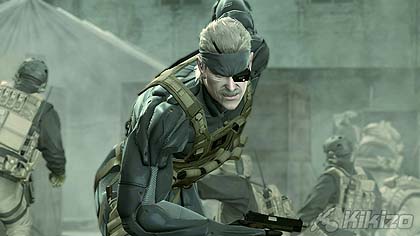Sony Sees Black Future for the PS3
The days in the red could soon be over.
Sony has taken heavy criticism over the past 14 months for its handling of the birth and early life of the PlayStation 3, but with hardware sales on the rise and software coming out more regularly, things are looking up for the console.
Keeping production costs in check is something Sony has tussled with for some time. The inclusion of Blu-ray and high-end graphics and central processors meant that Sony was making a hefty loss on the console at launch.
Over the past few months, Sony has steadily refined the PlayStation 3 hardware, dropping extraneous parts, such as the chips that helped the console play back older PlayStation 2 games.
In an interview with Reuters this week, Sony president Kaz Hirai said that costs were indeed coming down.
"The 40 gigabyte PlayStation 3 obviously has fewer components (than more powerful models), and uses less power, which means that components required to dissipate heat, for example, can be smaller, so there is some cost reduction there," he said.
That's a boon to Sony, which research group iSuppli said was losing up to $300 (around £150) on each unit sold, according to calculations made in late 2006. Thanks to cost savings introduced over the past year, Sony is looking to do what Nintendo has been doing all along and start making money on the console.
"We want to get to the positive side of the equation as quickly as possible," Hirai told Reuters, adding that he hoped the company could cross into the black during its next financial year, which starts in April.
Sales are growing too. Sony sold 1.2 million PlayStation 3s in the weeks between 23 November and the end of 2007. This puts sales slightly behind those of the PlayStation 2 and the PSP, which sold 1.3 million and 1.4 million units in the same time period.
Hardware success such as this is a big reason why the games industry had its best year ever in the US in 2007. The Consumer Electronics Association told Reuters this week that sales were up 22 per cent in 2007 compared with 2006.
Now that all three hardware makers are in the market, hardware sales are expected to make up a smaller fraction of overall sales, with CEA predicting growth of 13 per cent in the US in 2008.
That puts games firmly in the spotlight. For Sony, exclusives are all important. Several game publishers, once aligned with the PlayStation 3, have branched out in recent months, taking their games to the Xbox 360 and beyond in a bit to recoup the massive investment required by modern game creation.
Fortunately for Sony, it's got one of the biggest games of 2008, Metal Gear Solid 4: Guns of the Patriots, all to itself. Both Konami and Sony have reiterated in recent weeks that, despite the rumours of a jump to the Xbox 360, the game will only be available on the PlayStation 3.
In-house games, too, add to the PlayStation 3's appeal. Dutch developer Guerrilla is working on the much-hyped sequel to alien shooter Killzone, while other internal studios are working on such big titles as Gran Turismo 5 and LittleBigPlanet.
Sony will, however, be hoping for a good response to the game. Already in 2007 the company has put out several well-publicized in-house games, including Uncharted: Drake's Fortune, Ratchet & Clank: Tools of Destruction and Heavenly Sword, and for the most part these games have failed to create the sort of stir Sony would like.
Alex Wollenschlaeger
Editor, Kikizo







 Satoru Iwata Video Interview - the late Nintendo president spoke with Kikizo in 2004 as 'Nintendo Revolution' loomed.
Satoru Iwata Video Interview - the late Nintendo president spoke with Kikizo in 2004 as 'Nintendo Revolution' loomed. Kaz Hirai Video Interview - the first of Kikizo's interviews with the man who went on to become global head of Sony.
Kaz Hirai Video Interview - the first of Kikizo's interviews with the man who went on to become global head of Sony. Ed Fries Video Interview - one of Xbox's founders discusses an epic journey from Excel to Xbox.
Ed Fries Video Interview - one of Xbox's founders discusses an epic journey from Excel to Xbox. Yu Suzuki, the Kikizo Interview - we spend time with one of gaming's most revered creators.
Yu Suzuki, the Kikizo Interview - we spend time with one of gaming's most revered creators. Tetris - The Making of an Icon: Alexey Pajitnov and Henk Rogers reveal the fascinating story behind Tetris
Tetris - The Making of an Icon: Alexey Pajitnov and Henk Rogers reveal the fascinating story behind Tetris Rare founders, Chris and Tim Stamper - their only interview? Genuinely 'rare' sit down with founders of the legendary studio.
Rare founders, Chris and Tim Stamper - their only interview? Genuinely 'rare' sit down with founders of the legendary studio. The History of First-Person Shooters - a retrospective, from Maze War to Modern Warfare
The History of First-Person Shooters - a retrospective, from Maze War to Modern Warfare